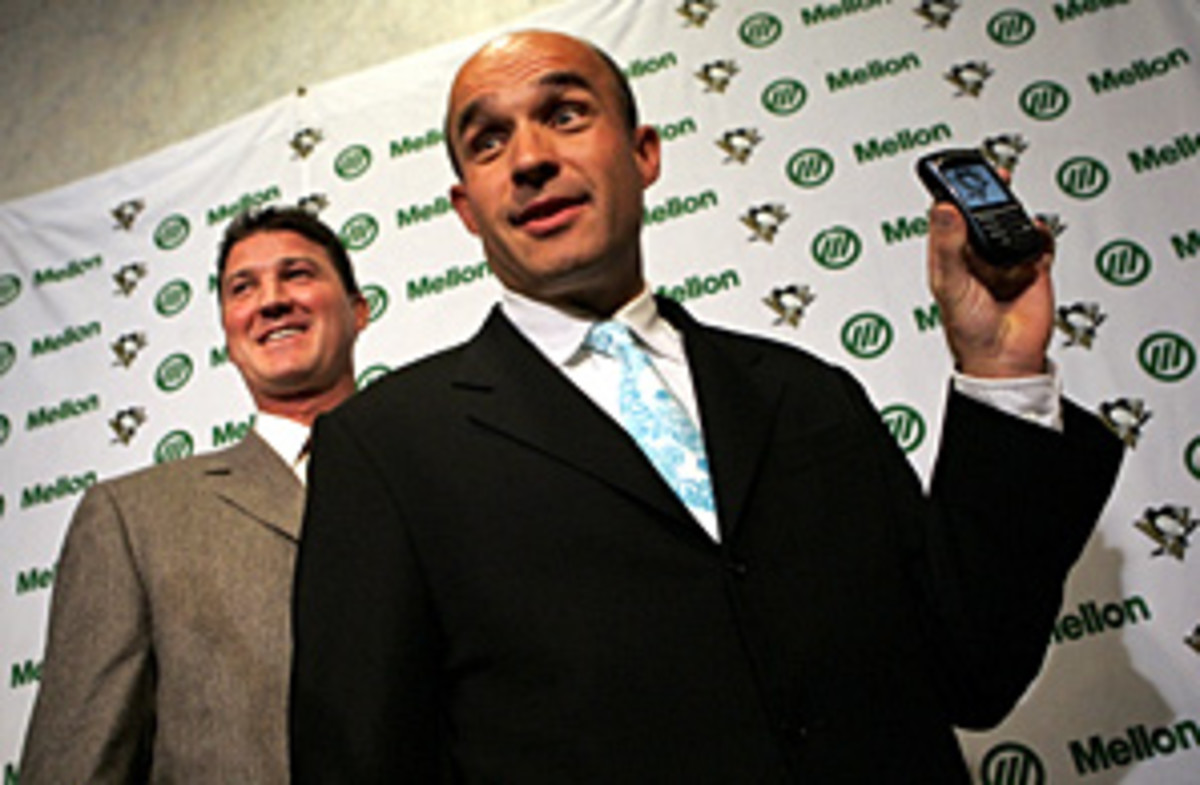Second team in Toronto isn't crazy
That's why a report in Tuesday's The Globe and Mail was so successful at riling up the masses. The piece suggested not only that members of the league's Board of Governors were informally considering the idea, but that the Maple Leafs themselves might be amenable to it.
What's next? Don Cherry to coach Team Russia?
It's never been a question of fan and corporate support for Toronto's Team B. If Los Angeles can sustain two teams, and the New York market three, there's no doubt that a second club could make a go of things in the center of the hockey universe. But it was always stopped short by the refusal of the Maple Leafs to make room or, if the team was placed elsewhere in the Greater Toronto Area, the threat to the long-term viability of the Buffalo Sabres.
So it's shocking to hear that the Leafs brand might actually have something to gain from sharing a small slice of their turf. Richard Peddie, the President of Maple Leafs Sports and Entertainment, is quoted as saying that the organization would not automatically reject the idea of a second team in Toronto. "When and if the league brings expansion to the table, we'll listen and decide what is best (for hockey)," he said.
A member of the Board of Governors added that, "The Maple Leafs would not be hurt one bit. In fact it would help them. They could make all kinds of money renting the Air Canada Centre to the other team."
A display of common sense within MLSE is enough to generate headlines on its own. What's more intriguing is the timing.
That this is being floated now doesn't mean that seat licenses will be available shortly -- if ever -- but it is telling. The members of the BOG aren't prone to idle gossip about expansion or relocation, especially in regard to a market as contentious as this. But they can read the papers, and they've heard from their financial advisors. Despite last week's pronouncements of the league's financial well being from the commissioner, they know that strong season ticket sales aren't an accurate indication of what lies ahead.
So either they're recognizing the possibility that the recession/depression/economic downtown might deliver a fatal blow to one of the league's foundering franchises (Nashville, Atlanta and Phoenix being the most vulnerable). Or there's a faction on the board that is hankering for a slice of what could be a very lucrative expansion pie. The number floated by the Globe story is a staggering $700 million for a Toronto-area franchise, including what are sure to be massive indemnification fees. Round the league out to an even 32 by adding a second expansion team (welcome back, Kansas City) and you're talking about an infusion of something near a billion dollars in total. That kind of money is tough to turn down in the best of times.
And there's one more angle to consider: the very public desires of the Players' Association to see another team placed in Canada. The post-lockout concept of a partnership between the PA and the league is a farce, but there's common ground should these talks gain traction among the governors. If it's to be expansion, there are more jobs to be won. And if it's relocation, then the players benefit from the increase in league revenues that would come with a transfer from a have-not market to the waiting lists of southwestern Ontario.
The union is a more savvy and formidable alliance under Paul Kelly, and they have a bit of leverage to play with here. The option of terminating the current CBA after this season is nowhere near enough to make something of this magnitude happen, but it gives their interests a certain heft.
There are plenty of very smart folks who will say this story is much ado about nothing, that this is coming from an isolated segment of the board, and that the NHL is no more likely to add a second team in Toronto than it is to switch to a white puck. They'll maintain that the league's inflexible constitutional requirements and the reliable retreat of the Maple Leafs into self-interest will continue to be deal-breakers.
But if there's one thing the primary owner of the Maple Leafs, the Ontario Teachers' Pension Plan, is interested in -- clearly winning the Stanley Cup isn't at the top of the list -- it's fattening the coffers. And short of adding, say, 16 more springtime home dates to the calendar, any future increases to the bottom line will be of the nickel and dime variety extracted from the already overtaxed faithful.
But if they allowed a new team onto their playground, the league-approved pacification plan would impact the bottom line in a way that nothing short of selling the Maple Leafs could top.
Of course, the key to any of this may be making nice with the one man known to have the means, and the interest, to make this happen. And the first step in that may be to open the door.
Sorry for that misunderstanding, Jim Ballsillie. Still got that checkbook?





